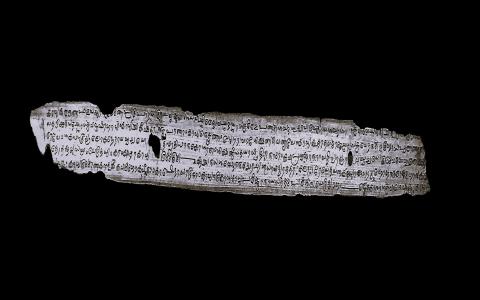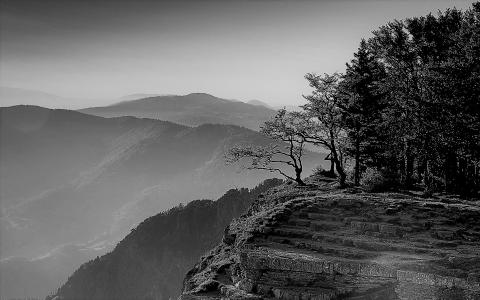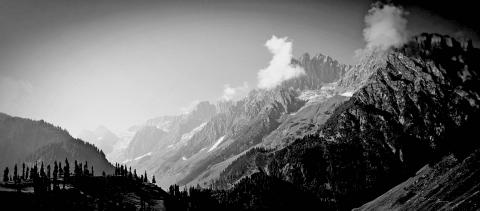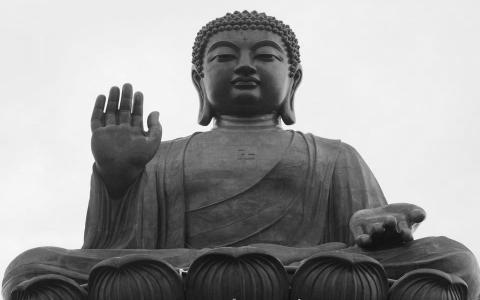July 2024

4.5. Dhvani
As a devout follower of Ānandavardhana, Sāyaṇācārya accepts three śabda-vṛttis: abhidhā, lakṣaṇā and vyañjanā. He does not admit tātparya:
तात्पर्यतोऽर्थमप्येके केचिदालङ्कारिका अनुवाद्यानामर्थानां विधेयार्थपरत्वं तात्पर्यमिति कमपि व्यापारमधिकृत्य तस्मात्प्रतिपन्नमर्थं तात्पर्यार्थमङ्गीकुर्वन्ति—“उमां स पश्यन्नृजुनैव चक्षुषा प्रचक्रमे वक्तुमनुज्झितक्रमः” । अत्र दर्शनस्य चक्षुःकरणत्वाव्यभिचाराद्यत्तदुपादानं तद्विशेषणार्थम्। तदेव...

The nature of Duryodhana in Ūru-bhaṅga is different from the manner in which he is portrayed in the plays Dūta-vākya and Dūta-ghaṭotkaca. In the segment of the story captured in the Ūru-bhaṅga, we see that Duryodhana has realised his mistake and is at peace. Balarāma appears there when the gadā-yuddha, i.e., fight with mace is about to begin. He looks at Duryodhana and laments, “You have been cheated by Bhīma!” Duryodhana does not agree with his...

यह जानते ही विरूढक आपे से बाहर हो गया। ‘इन लोगो ने मेरे पिता को भी धोखा दिया और अब मेरा भी अपमान कर रहे है’ यह कहते हुए उसने संपूर्ण शाक्य समुदाय का ही नाश कर दिया। संक्षेप में यह उस समय के गणतंत्रों के मध्य के प्रेमसंबंधों, विश्वास तथा प्रजातंत्र की स्थिति को दर्शाने वाली एक कहानी है।
यह गणतंत्र लम्बे समय तक बने नही रह सके। अपनी आन्तरिक दुर्बलता के अतिरिक्त प्रत्येक गणतंत्र को अपनी सामुदायिक श्रेष्ठता का अहंकार था। किस सीमा तक इनकी अशिष्टता की...

We said in (5) that time is when existence is comprehended. Comprehension is the characteristic of the ātmā. That itself is ‘cit’ or ‘cicchakti’. Existence is also similarly a characteristic of ātmā. That is ‘sat’ or ‘sattā’ (sattva). Therefore we can say this: if cit is associated with sat, there is a sense of time. However, when have sat and cit ever been separated from each other? Never. Therefore, time is without any beginning and end,...

Let us now examine some of the salient features of Poetics expounded by Alaṅkāra-sudhānidhi.
4.2. Poet and Poetry
The Indian aesthetic tradition holds rasa as the raison d’être of poetry. However, it sees no difference between the joy and education that rasa provides.[1] Alaṅkāra-sudhānidhi agrees with this view but considers education as an additional benefit derived out of enjoying rasa. Using a memorable example, it says: “Deriving upadeśa...

Dūta-vākya continued ...
War was inevitable; Bhīṣma sleeps on a bed of arrows; the first ten days of the war was led by Bhīṣma. On the eleventh day, Droṇa was anointed as the commander-in-chief of the armies. On the thirteenth day, when Arjuna was away fighting the Samaśaptakas, Abhimanyu, Bhīma and others made their way into the Padma-vyūha and fought many ati-rathas and mahā-rathas. Abhimanyu valorously fought his enemies and attained vīra-...

अतः उस समय क्या किया जा सकता था जब विदेशी आक्रांताओ ने युद्ध के सारे नैतिक मूल्यों (अर्थात् धर्म) की परवाह किये बिना हिंसात्मक आक्रमण किये। इस्लाम के रक्त रंजित आक्रमणों के समक्ष हमारी सभी युद्ध कौशल की योजनाऍ तथा राजनैतिक अनुमान अनुपयुक्त सिद्ध हुए। अनेक भागों की अपनी विशाल सर्वश्रेष्ठ कृति ‘इंडियन काव्य लिटरेचर’ में विशाखादत्त के मुद्राराक्षस के संबंध में लिखते हुए ए.के.वार्डर कहते हैं –
जब तक भारत में चाणक्य जैसे व्यक्ति आते रहे तब तक उसकी...

In our country, it is not difficult to find instances where extreme religiosity makes one forget worldly duties. It is quite common to find educated people who,in the garb of renunciation and devotion, have shut their eyes to filth in society and country. If our śraddhā in dharma had been seen in our contemporary societal and political life, our country would not have to suffer from perpetual famine and fear of enemies[1]. Bhajans and festivals...

3. Nature of the Text, Authorship Problems
In section 2.2 we have observed that Sāyaṇācārya stayed in Udayagiri and acted as the minister to Kampaṇa I and Saṅgama II during 1345–1365 CE, and that he shifted to Vijayanagara later. Saṅgama II ascended the throne in 1355 CE. Going by these details we infer that Sāyaṇācārya must have authored Alaṅkāra-sudhānidhi during his stay at Udayagiri, perhaps after 1355 CE, close to 1365 CE.[1] After Saṅgama...
